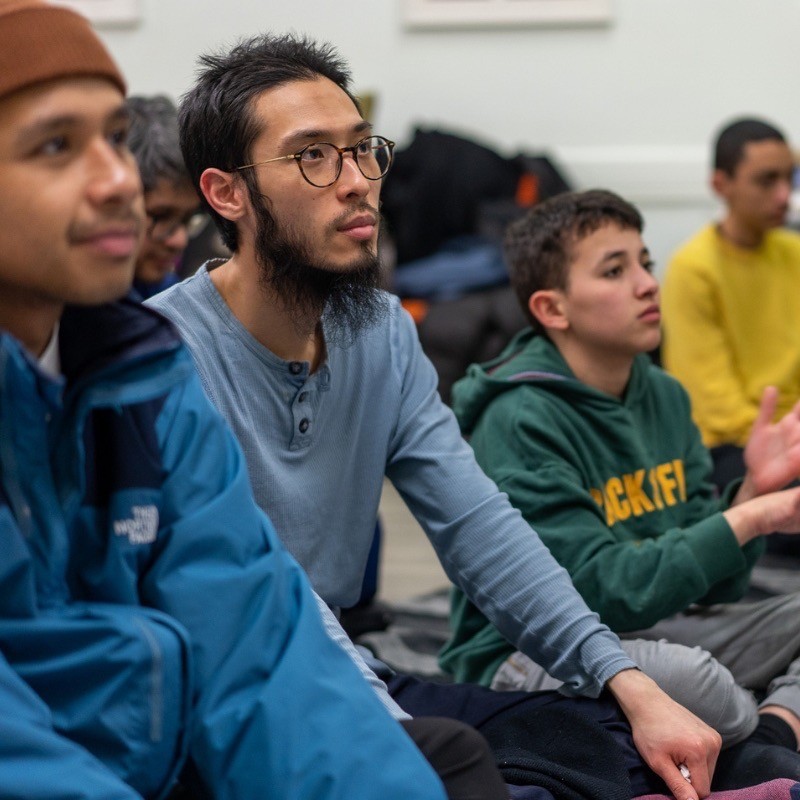How Do Muslims in the UK Decide the Start of a New Hijri Month?
The Islamic calendar, known as the Hijri calendar, is a lunar system based on the sighting of the new crescent moon (hilāl). Each month begins when the hilāl is sighted, traditionally with the naked eye, after the sunset of the 29th day of the current month. If the moon is not seen, the month completes 30 days.
In the United Kingdom, where Muslims live as a minority with no centralised religious authority, determining the start of a new Hijri month can vary from one community to another. Over time, four primary methods have become established among Muslims in the UK:

1. Saudi Announcement
Many mosques and communities follow the official moon sighting announcement of Saudi Arabia, particularly due to its role in organising the Hajj and the timing of Eid prayers in the sacred cities of Makkah and Madinah.
This approach takes into account the sighting of the moon anywhere within Saudi Arabia’s jurisdiction, regardless of whether the crescent would be visible from the UK. It is popular among many mosques due to its consistency and early announcement, allowing families and institutions to plan ahead.
Some scholars mention the acceptability of this method due to its fit into the broader concept of global moon sighting, which is valid according to some fiqh positions [1]. However, criticisms have been made that followers of the Saudi Announcement would not accept the announcements of other countries, and thus it would be inaccurate to describe it under global moon sighting.
Other scholars and communities have raised concerns about accepting reports that reportedly defy astronomical data, or reports of moon sightings when the moon has not yet set or is not visible to the naked eye. Moreover, scholars from Saudi Arabia itself, during public lectures, have urged communities to sight the moon in their own local geography.

2. Morocco/South Africa Announcement
Another common practice is to follow the announcement of the moon sighting in Morocco or South Africa. Often, the reason cited is to base our moon sighting upon the geographically closest Muslim-majority countries to the UK, which have a long-established, government-supervised sighting system, such as Morocco.
Many in the UK prefer this method for its reliability and because Moroccan authorities only accept naked-eye sightings, ensuring the tradition of ru’yah basariyyah (visual sighting) is upheld. It also avoids the need to rely on reports from very distant lands or those with different horizons.
Of the UK communities that accept the moon sighting announcements of Morocco, they also often accept those of South Africa [2].

3. Local Moon Sighting (UK Only)
Some Muslim groups and scholars in the UK insist on moon sighting within the UK itself. They argue that each region should rely on its own horizon, and that the communal religious obligation is not fulfilled unless the crescent is sighted locally.
These efforts are usually coordinated by local moon sighting committees who go out in various parts of the UK, such as on hills or coastal areas, to look for the hilāl with the naked eye. Sightings through optical aids such as telescopes are generally not accepted, in accordance with traditional jurisprudential positions.
Local moon sighting committees have been established and preserved in many parts of the world, such as Southeast Asia, South Africa and Morocco.
One of the most active organisations championing this approach is the New Crescent Society, which has revived public engagement with the tradition of moon sighting. They work across communities and denominations, and notably have partnered with the Royal Observatory in Greenwich to reconnect Muslims in the UK with both heritage and science in moon observation. Their educational programmes and public sightings have drawn widespread attention and brought moon sighting back into the public consciousness.
While this approach firmly adheres to classical fiqh, it is a relatively new movement in the UK, and many communities are unwilling to change their current methods [3]. One of the reasons the Muslims in the UK have not historically established a strong moon sighting system is due to a long-standing myth that the skies are rarely clear enough in the cloudy UK to adopt local moon sightings.
Many mosques and communities prefer to follow the method adopted by the more prominent central mosques in their area to align calendars with the majority. Consequently, the adoption of local moon sighting has been slow across the UK. If mosques and communities were to adopt the local moon sighting method, it would potentially cause initial splintering of communities with people observing Ramadan and Eids on different days. However, a nationwide adoption of UK moon sighting wouldn’t be possible without going through a period of upheaval.

4. Turkish Calculated Calendar
The Diyanet (Religious Affairs Directorate of Turkey) uses astronomical calculations to produce a full year’s Hijri calendar in advance. This approach follows the view that since accurate moon birth and visibility data are available, it is no longer necessary to rely solely on human sighting.
Few mosques in the UK—such as those with links to Turkish communities or certain Balkan countries—use this method. It offers consistency and clarity for planning purposes, especially for schools, workplaces, and travel.
However, this method is not universally accepted. Many scholars consider actual sighting (ru’yah)—even if aided by technology—as a necessary condition for marking the start of the lunar month, and thus reject a purely calculated approach.

The Prophetic Dua upon sighting the New Moon
اللهُ أَكْـبَر، اللّهُمَّ أَهِلَّـهُ عَلَيْـنا بِالأمْـنِ وَالإيمـان، والسَّلامَـةِ والإسْلام، وَالتَّـوْفيـقِ لِما تُحِـبُّ رَبَّنـا وَتَـرْضـى، رَبُّنـا وَرَبُّكَ الله
Allāhu Akbar, Allāhumma ahillahu `alayna bi ‘l-amni wa ‘l-īmān, was-salāmati wa ‘l-'Islām, wat-tawfīqi limā tuḥibbu Rabbanā wa tarḍā, Rabbunā wa Rabbukallāh.
Allah is the Most Great. O Allah, bring us the new moon with security and Faith, with peace and in Islam, and in harmony with what our Lord loves and what pleases Him. Our Lord and your Lord is Allah.
(At-Tirmidhi, Ad-Darimi)

Conclusion
The variety of methods used by Muslims in the UK to determine the beginning of the Hijri month reflects the diversity of the Muslim community itself. Each method is rooted in a particular legal or practical consideration, ranging from classical jurisprudence to the demands of modern life.
While differences remain—especially in deciding the start of Ramadan or the day of Eid—most communities have learned to coexist respectfully. At the heart of these differences lies a shared love for the sacred times of worship and the longing to uphold the Sunnah of sighting the moon.
Abu Huraira (RA) reported that the Messenger of Allah (SAW) said: “Whenever you sight the new moon (of the month of Ramadan), observe the fast. When you sight it (the new moon of Shawwal), break it, and if the sky is cloudy for you, then observe the fast for thirty days.” (Muslim)
Whether one follows local sightings, regional announcements from abroad, or calculated calendars, unity of hearts and mutual respect are vital for maintaining harmony in our communities. In the absence of a centralised religious authority in the UK, it is crucial that open dialogue continues—rooted in mutual understanding and sincerity—so that we may collectively move closer to practising our faith in the spirit of the perfect example: our beloved Messenger of Allah (SAW).
References
[1] This is the position of the Hanafi and Hanbali schools (see Ibn Abidin, Radd al-Muhtar, 2:619 and Ibn Qudama, al-Mughni, 3:107 respectively). It is also a position within the Maliki and Shafi’i schools.
[2] This would also be in line with the Maliki school’s position that countries that are relatively close to each other (on the same side of the globe) can follow a unified sighting, but not countries that are very far from each other, such as a country in the far Muslim west following a country in the Muslim East (see al-Hattab al-Maliki, Mawahib al-Jalil, 2:384).
[3] Relying on local rather than global sighting is the position of the Shafii school (see al-Nawawi, Rawdat al-Talibin, 2:348). It is also a position among the three other schools.
With review and contributions from authority figures, including Imad Ahmed, Founder of New Crescent Society and fiqh references from Dr. Samer Dajani.



